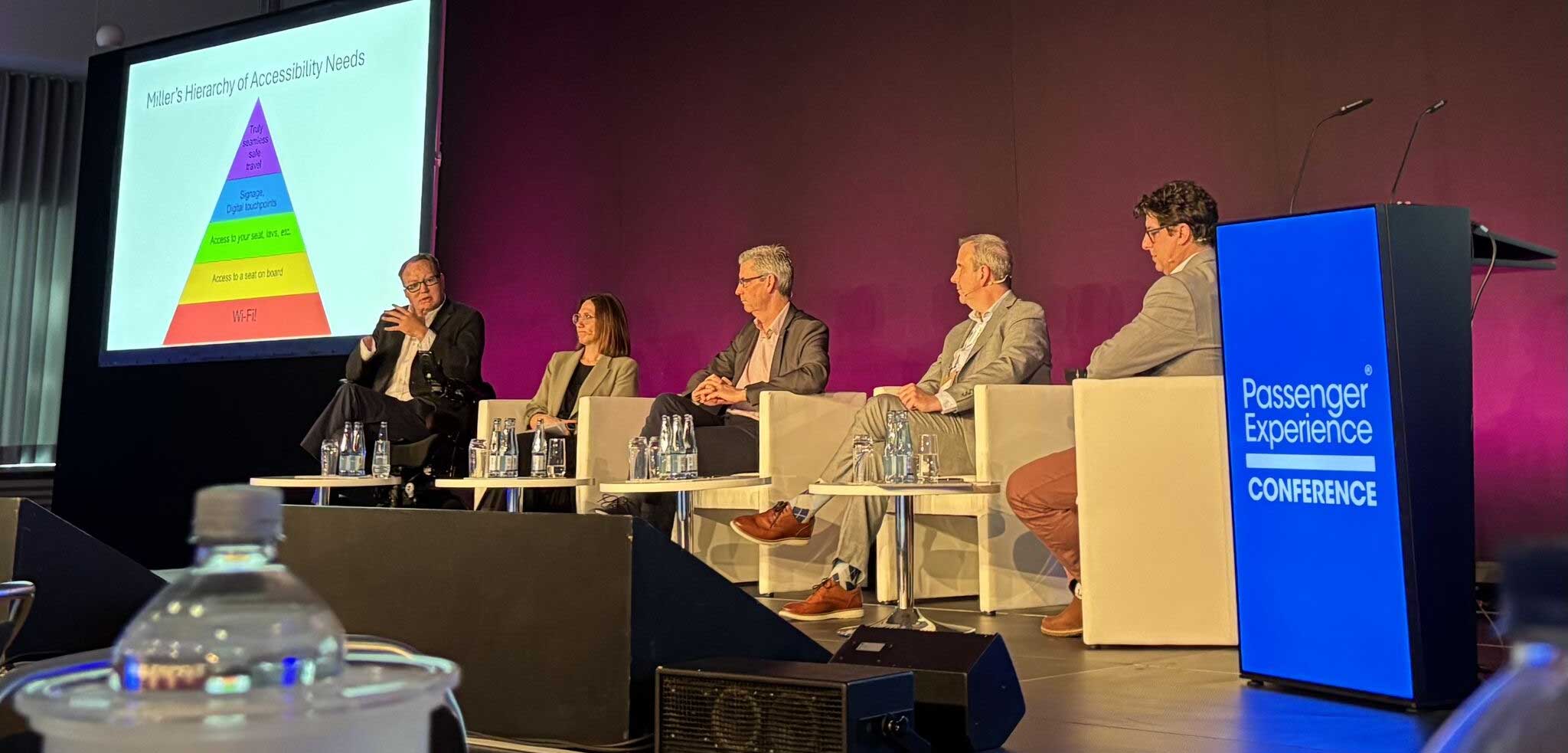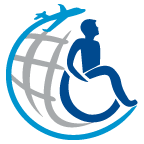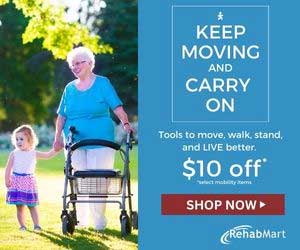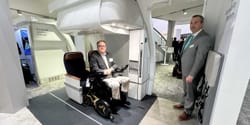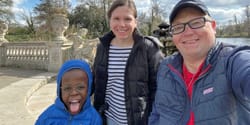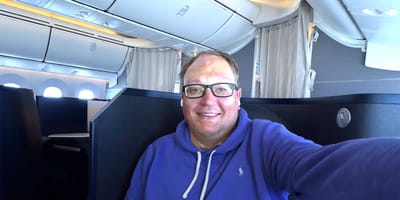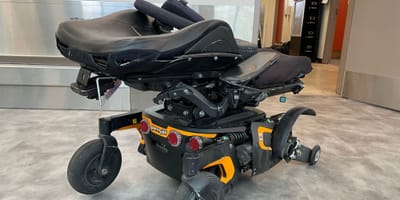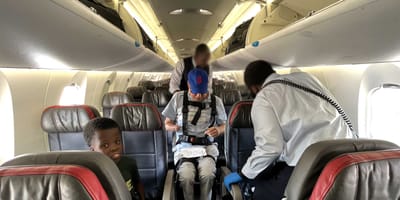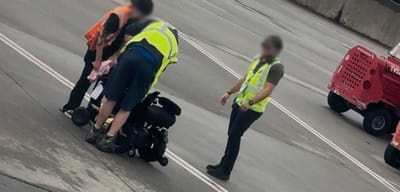I was first invited to attend the Passenger Experience Conference in 2022, not as a speaker who would share the perspective of disabled travelers onstage, but as an audience member charged with asking speakers tough questions about accessibility. It was a very small first step towards disability representation, but that seed has grown — this year, the topic of accessibility was given prime position at the conference, and I was invited to share my ideas during both a plenary and breakout session.
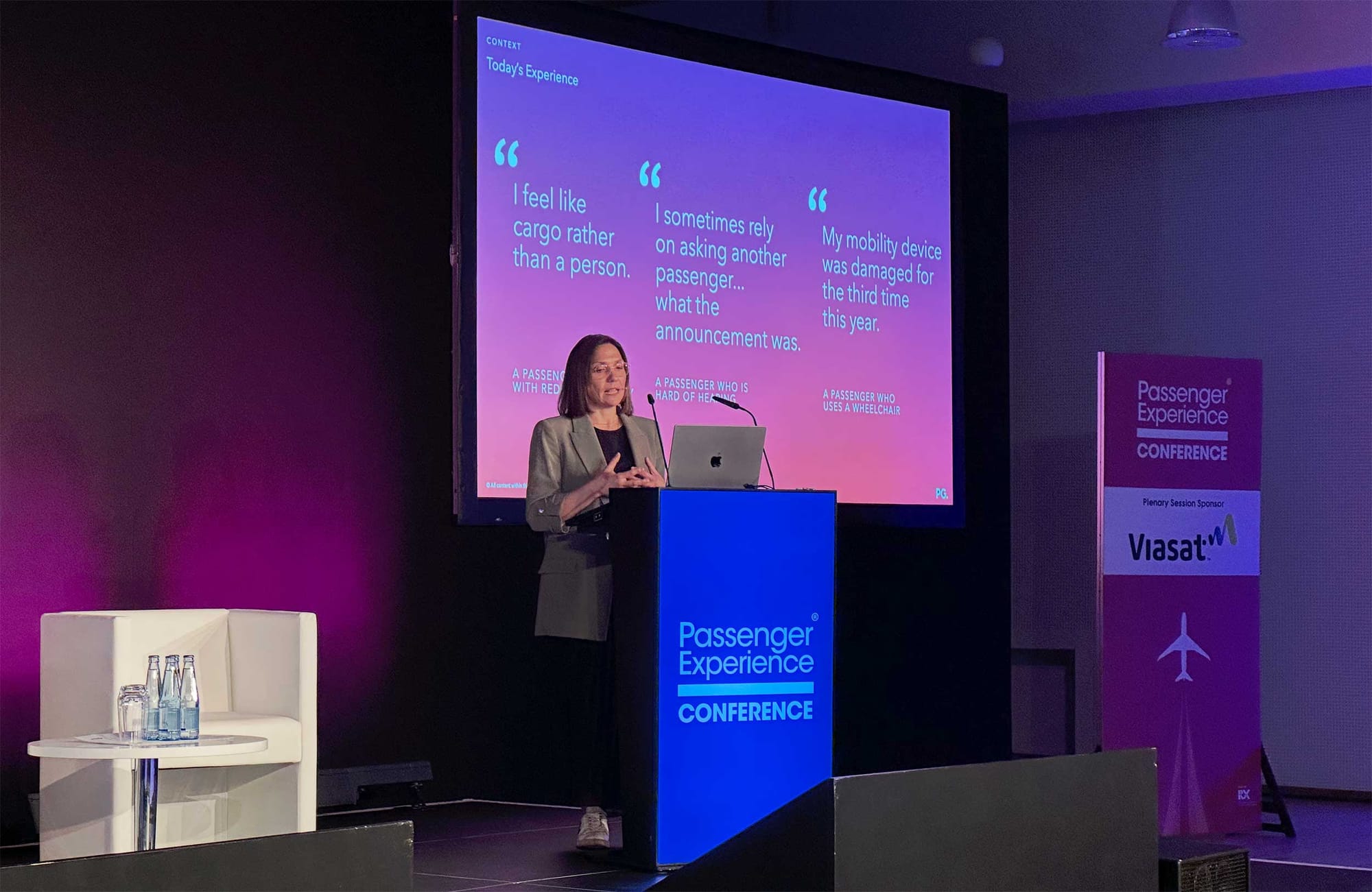
The conference opened with a wonderful keynote by Jo Rowan, Associate Director of Strategy and Customer Experience Design at PriestmanGoode, the design firm working with Delta Flight Products on the Air4All wheelchair securement space. Jo eloquently shared insights from PriestmanGoode's research, and reiterated the company's commitment to "designing with empathy" and accounting for the needs of all passengers. In addition to its work on the Air4All wheelchair securement solution, PriestmanGoode has also developed Enable, a mobile application that the company hopes will empower disabled people with the tools to navigate air travel more effectively.
Following Jo's keynote, I was invited onstage to join a panel discussion with Axel Becker, Manager, Trend Research, Cabin and Cargo eXpert Future Cabin Performance & Design at Airbus, Shawn Raybell, Director of Business Development at Collins Aerospace, and moderated by Seth Miller, journalist and founder of PaxEx.Aero.
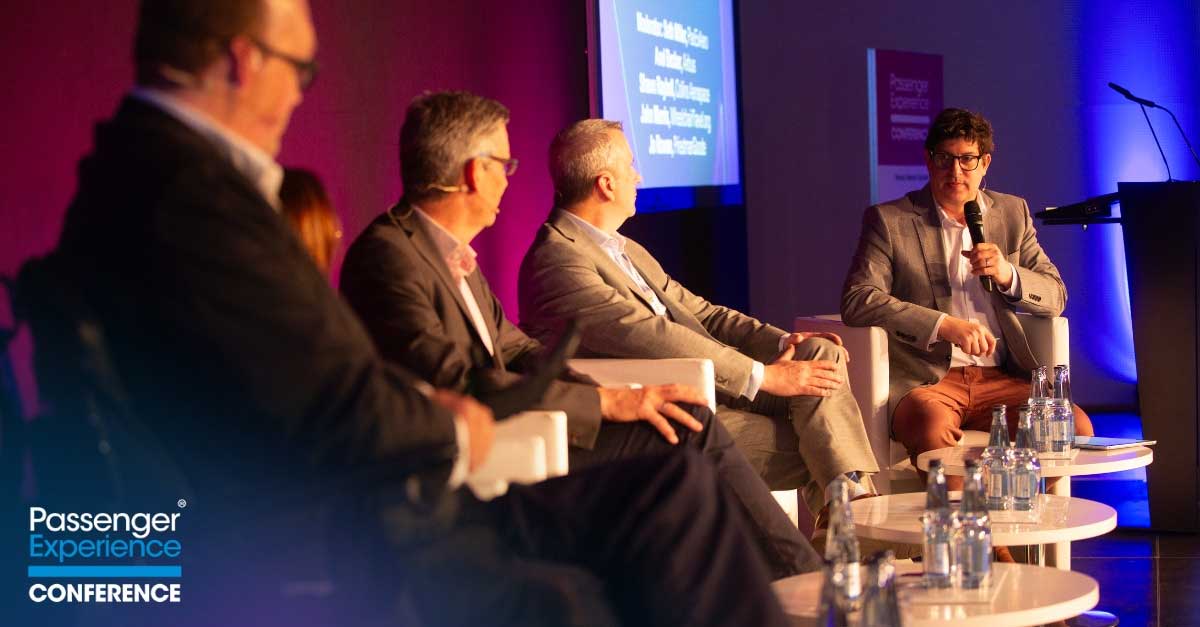
We had a robust conversation about the future of accessibility in air travel. I melded experience from my own travels with stories shared by WheelchairTravel.org readers to present opportunities for improvement, a business case for accessibility and the need to incorporate disabled perspectives in the earliest stages of product development.
If you are a regular reader of this website, nothing I said would have come as a surprise to you — but for airline executives who consider the disabled passenger experience infrequently or never at all, my remarks were eye-opening (they told me so!). I raised a lot of points — the importance (and value) of incorporating a wheelchair space in the aircraft cabin, the practicality of making lavatories truly accessible, the opportunity to turn disabled people into frequent flyers, and the possibility of creating a market for disabled and accessible travel in world regions where it does not yet exist.
In addition to this plenary session, seen by all attendees at the conference, I also joined a breakout session in the afternoon entitled "Accessible, Inclusive and Equitable: Action to Improve Air Travel for All."
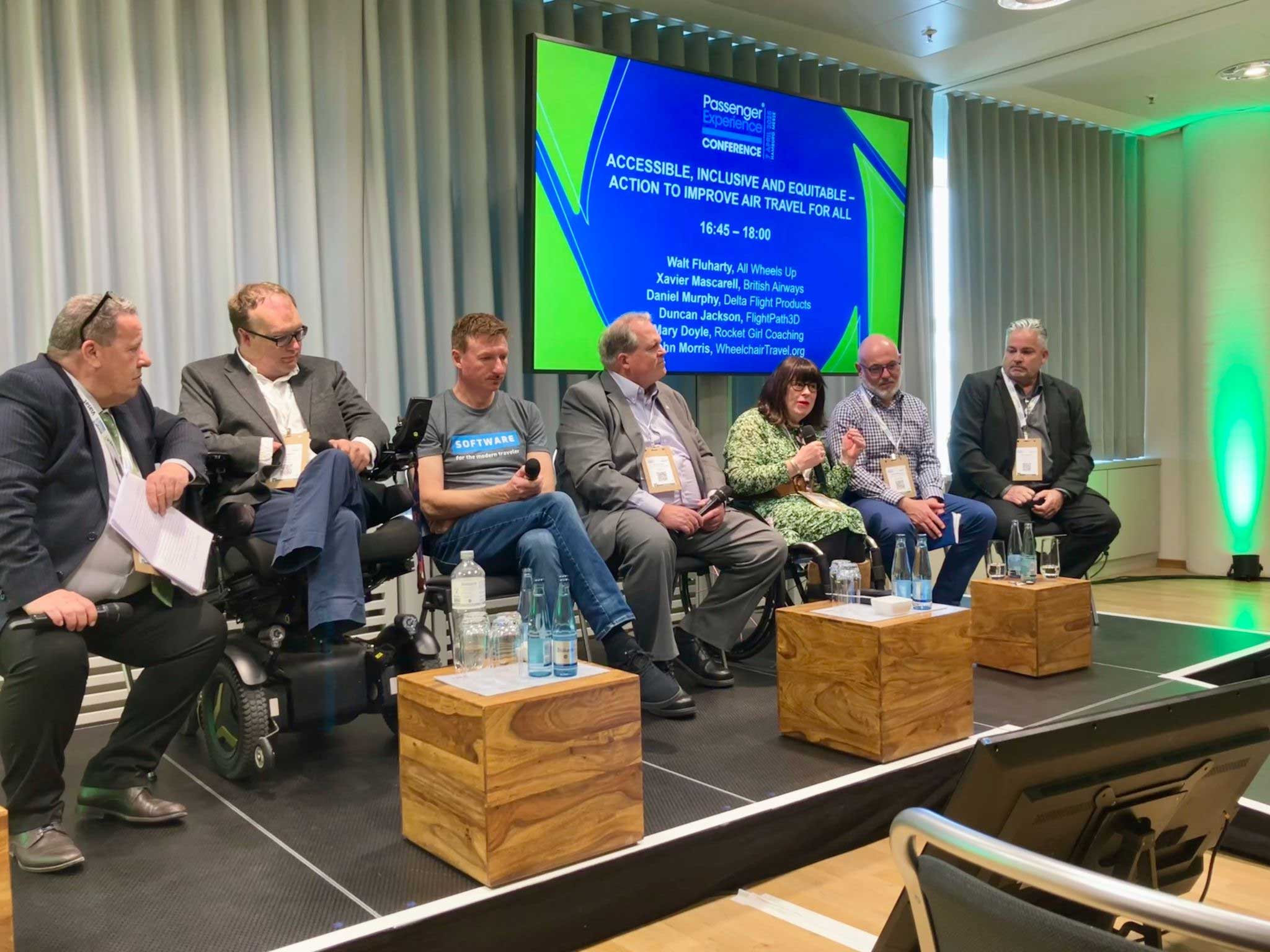
The panel consisted of myself, Mary Doyle from Rocket Girl Coaching, Walt Fluharty from All Wheels Up, Duncan Jackson from FlightPath3D, Xavier Mascarell from British Airways and Daniel Murphy from Delta Flight Products. It was moderated by Chris Wood of Flying Disabled, who is a member of the Air4All Consortium.
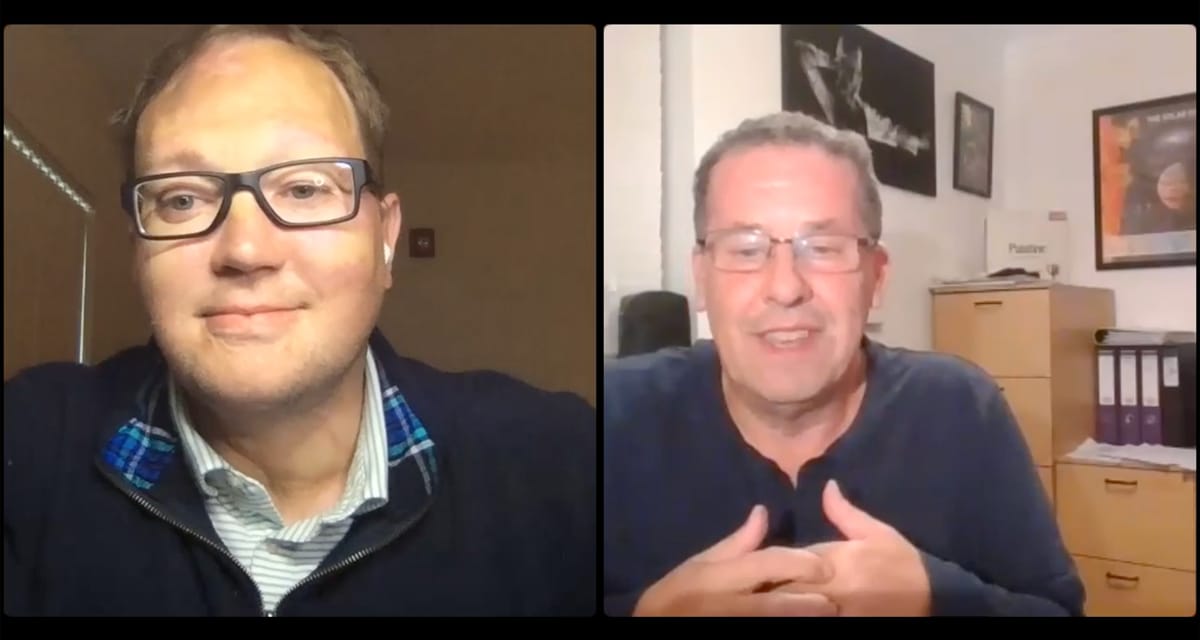
Putting seven people together on a stage is a tough ask, but Chris kept us on track and we had a wide-ranging conversation around the experiences disabled people have when flying (many of which are not good and inconsistent across airports and airlines), how airlines are positioning to incorporate new innovations in accessibility (new rules from the USDOT will have a big impact), how the wheelchair space in the cabin can be achieved (Delta Flight products is optimistic and continues to invest in Air4All), and how disabled people's needs are considered in the development of new technology (FlightPath3D worked closely with disabled people to create an accessible user experience).
It was an honor to share the stage with so many accomplished people, but in particular fellow wheelchair user and disability inclusion advocate Mary Doyle, who had made the trip to Hamburg from the United Kingdom. We both shared passionate testimonies and advocated for a collaborative approach to accessibility that would consider every traveler's needs.
Although these events do not generate hard commitments from airlines to advance any particular agenda or priority, the fact that the industry gives me space to make a case and beat the drum for equal access everywhere is encouraging. Five years ago, no one was listening — now they are. It's important that we take advantage of the opportunity!

